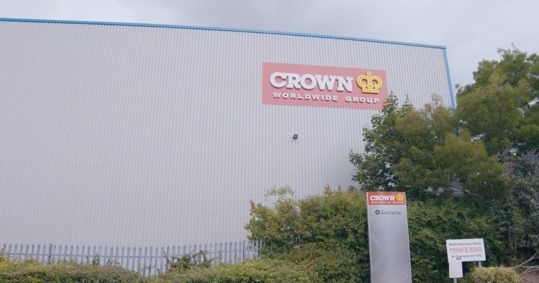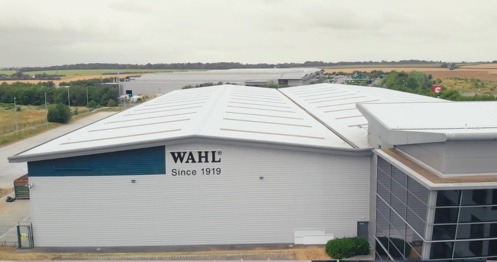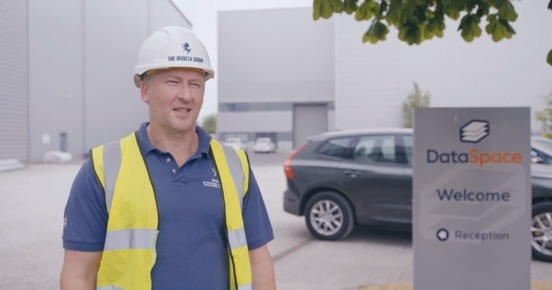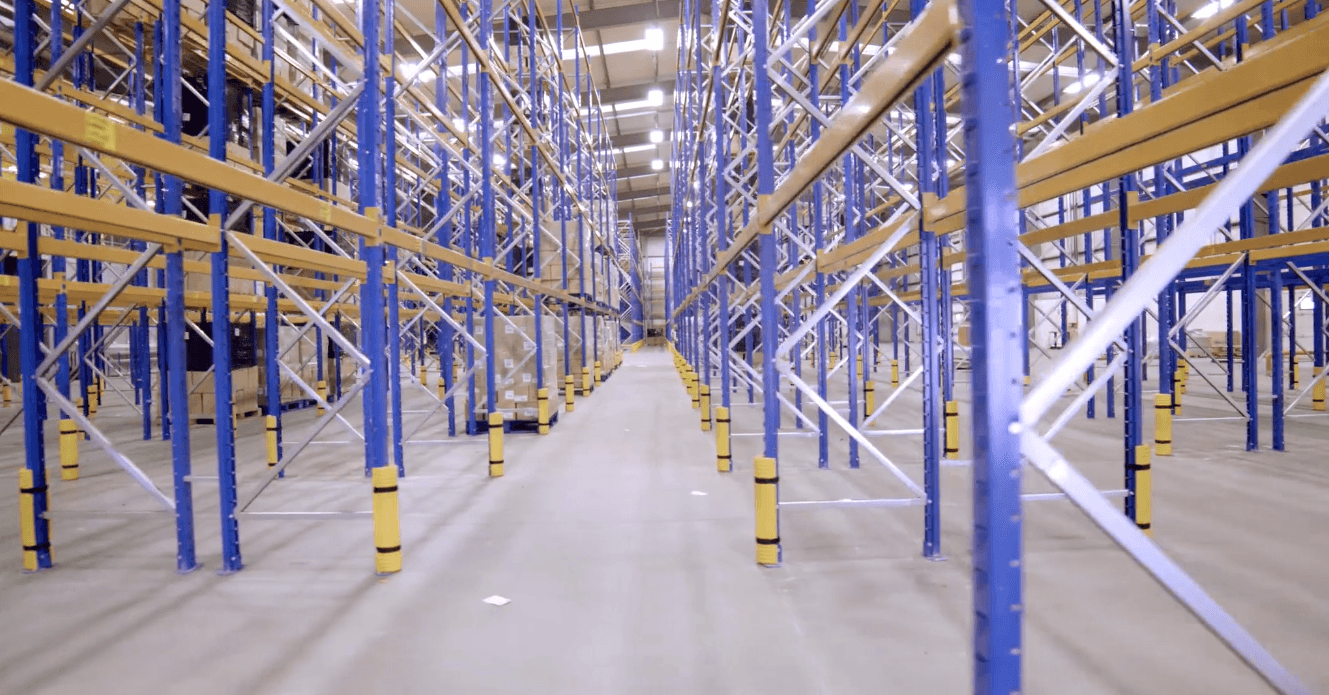Watch our Story
40 Years of
The Invicta Group
Quality. Efficiency. Ambition. From humble origins, The Invicta Group has grown into a thriving global company, helping countless companies to reach their full potential in 29 countries around the world to date.
Read on below to learn a little more about our expertise, draw on the lessons we’ve learnt from our 40 years in business, and meet the people behind our success.
Our Expertise
Our People
With hundreds of years of combined experience, the people who work at Invicta are its greatest asset, and the key to the enduring quality of our work.
Click on the arrows to the right to learn more about the personalities behind our projects, and find out what makes a successful business tick.
Our Experience
Though our commitment to upholding high standards permeates all of our work, we’ve been lucky to work with an incredible array of businesses over the years. Watch the videos below to learn about the creative solutions we’ve applied to a few of our more recent projects.


The Crown Worldwide Group provide transportation, storage and logistics services in more than 60 countries around the world. We are proud to have worked with them on an extension to an archive system containing more than one million boxes. Watch the video above to find out more about the business, and learn how we completed this complex project.


Wahl are one of the world’s premier names in quality grooming products. When they asked us to consolidate the contents of multiple storage facilities under a single roof – and all in time for their looming 100-year anniversary – we had to come up with a creative and time efficient solution. Find out about Wahl and our approach to the project by watching the video above.


Formed in 1999, Dataspace have grown into a leading data storage company, and their storage demands have grown in tow. With more than a million boxes to take care of, their rapid growth has demanded a flexible storage solution that could expand alongside the business. Watch the video above to see how we catered to this demand over 15 years of phased installations.
Lessons we've learnt along the way
Success and longevity are hard-won, and inspire plenty of soul-searching along the way. But problems breed creative solutions, and the lessons we’ve learned have both inspired and enhanced our future work. Here are just a few of the most important lessons we’ve learned over 40 years in the business.
Lesson 1
Learn when to say no
You’ll reach a point after the difficult days of starting a business when the enquiries start to mount up. To borrow a phrase, all business may seem like good business, particularly if you’ve gone through a fallow spell. As projects roll in, you’ll be tempted to take them all on at once.
While you’ll want to take on every challenge, this isn’t always the best approach. Not only can you quickly become overwhelmed, but not every project is going to be the right fit for your business. There’s nothing wrong with dreaming big, but you have to be intelligent about how you scale up, and realistic about your capacity to deliver.
Assess your capabilities, the requirements of the client and how that project could serve your business in the long term, both in how it develops the skills of your staff and how it reflects on your business as a whole. There’s nothing wrong with taking a prestige project over a smaller one, but be realistic. It’s better to be straight up and deliver things on time than overpromise and underdeliver.
Lesson 2
Be aware of your competition, but not guided by them
An awareness of your industry is crucial in business, and it pays to prevent competitors from sneaking up on you. Rivalries shouldn’t blind you to your rivals’ strengths and weaknesses, and you should make a point of learning from their successes and their mistakes.
There will always be someone who steals a march on you in some way, and comes up with something new that proves successful. There’s nothing wrong with cribbing the things that they do better than you, but you should be wary of ending up in an arms race with your competitors.
Your business is its own entity, and it shouldn’t be dragged into the orbit of others. Only ever reacting to what other businesses do will turn into a race to the bottom, and allows them to dictate your future. Instead, come up with your own innovations, and aim to set the standard for everyone else to follow.
Lesson 3
Be an optimistic realist rather than a hopeful dreamer
When you build things as high as we do, it’s easy to get your head stuck in the clouds. Successful projects in the past and grand visions for the future can tempt you into overestimating your current position, as well as how quickly you can expand and how much you still have to improve.
There’s nothing wrong with lofty ambition, but your hopes and expectations have to be tempered by reality. If you assume that everything is going well and will continue to do so, it’s very easy to be caught off guard. A false assessment of your strength and resources can prevent you from building contingencies, and leave the business in dire straits.
Pessimism is the wrong response to this, as it can slow decision making and prevent you from taking measured risks. Instead, be optimistic but realistic, and balance boldness with caution. Do your research and prepare for the worst, but hope for the best. Do this, and you’ll never be disappointed – only pleasantly surprised.
Lesson 4
Spending less can cost you more
You see a great deal on a pair of shoes online. They’re off-brand, but they look the same and cost half the price. You’ve saved money in the short term, but they fall apart a few weeks later. Invest in a sturdy pair of boots, however, and they’ll do you years of sterling service.
The temptation in business – at least within the bounds of law and decency – is to cut every feasible corner. The little efficiency savings you make will save money that can be invested elsewhere. Yet the same principle applies: invest and plan for the long term, and you’ll save yourself trouble down the line.
Don’t confuse this with making genuine efficiency savings. Careful planning, talking to employees and researching new approaches are all investments of time that can save time later on. Cutting corners without effort is almost always a bad idea, and it will be reflected in the final product. Clients will see this lack of effort, and the knock-on effects will cost you in the long run.
Lesson 5
Taking a shortcut is often not the quickest route to the destination
Any dad – or relative of a dad – will know the perils of the so-called ‘shortcut’. The attempt to save a few minutes by driving down the B-road will end up costing you twice as long, as you get stuck behind a tractor or a horse. The same principle applies in business – albeit without the animals.
Businesses do sometimes have breakthroughs, but they tend to happen almost by accident. Most prolonged success comes from a steady trickle of business, and a portfolio of consistent, high quality work. Trying to fast-track your way to stardom is a surefire way to overextend yourself, and risks a high profile failure.
Life isn’t built for our convenience, and the optimal route to success is rarely the easiest one. There’s nothing wrong with efficiency – see the point above – but success is usually hard won, and hitting roadblocks is a natural part of your growth and improvement. Invest the time to do the job properly, or don’t do it at all.
Lesson 6
Any news is better than no news
As Sir Francis Bacon reputedly said, knowledge is power. The more you know about how your projects are progressing, and the more context you have for your decisions, the more successful they are likely to be. When something goes wrong – or you get a strong sense that something will – step back, breathe deeply and think about what it really means.
Hearing bad news gives you the opportunity to react to it, and hearing good news allows you to consolidate. Every hurdle is an opportunity, and the more information you have on everything that happens within your business – good or bad – the more you have to work with.
Not everything will go smoothly, and though it isn’t always your fault, sometimes it can be. Don’t get frustrated, or close yourself off to reports and updates because you don’t want to hear them. Be open to negative feedback and you can focus on fixing it. Before long, you’ll be getting positive news instead.
Lesson 7
A mistake in hindsight is a lesson learned
Mistakes can seem like the worst thing in the world when they happen. Not only can they cause damage – be it to time or money – but having made a mistake can seem like it undermines your credibility and authority. While some mistakes are worse than others, there is always a silver lining.
Mistakes are as natural a part of business as they are of life. It’s rare that they put a permanent stain on your business, so don’t get angry – stay prosaic. Gather as much information as you can, break down each error and why it happened, and use this to improve your approach in the future.
We all make mistakes in life, and you can doubtless remember all manner of stupid things you said and did when you were younger. We all know that dwelling on them is a bad idea, yet we do the same thing in business. Every error is a learning experience, and armour to protect you against similar problems.
Lesson 8
You don't know what you can achieve until you try
Just because you haven’t done something before, doesn’t mean you can’t! We learn by doing, and some of us are much better at it than our time at school would suggest. It’s only by testing the boundaries that we find where our true limits lie, and those boundaries can extend much further than we think.
This applies to talent at all levels. Not only do we sometimes underrate our ability, we also underrate that of others. We may think we don’t have the manpower to carry out a particular job, but we’re actually underrating our employees’ efficiency, or ignoring an approach that could save time and resources. Other times we can pigeonhole people as specialists in one discipline, and ignore other talents.
Natural talent and experience are both great assets, but they’re meaningless without the drive to fully exploit them. And much of the gap in people’s natural ability can be closed with effort, perseverance and dedication. If you have a big idea or a proposal that feels out of your remit, don’t put the kibosh on it straight away. Do the groundwork, and see if you can’t make it your next milestone. The learning experience could push your business to a new level.
Lesson 9
Great leaders are great simplifiers
To paraphrase Kurt Vonnegut, any leader who can’t explain to an eight-year-old what they’re doing is a charlatan. It may sound a bit strong, but it’s true: if you can’t break your ideas and plans down into the simplest terms, you might not understand them yourself.
There’s nothing wrong with realising this, but you have to act on it. If you have to communicate a concept to other people, take to Twitter. Try to write it into one succinct tweet, leave it a while, and then come back and read it again. If it doesn’t make perfect sense, work at it until you’ve got it spot on.
Passing instructions down the chain of command can often be like a game of Chinese Whispers – lengthy, convoluted instructions can be misinterpreted and changed along the way, and lead to an outcome that differs wildly from your vision. Communicate in clear, bold and efficient terms, and you’ll inspire similar qualities in your work.
Lesson 10
Difficult times require hard decisions
In 40 years, we’ve been lifted by booms and faced down recessions. There have been fallow periods, and periods where everything went right. Through it all, we’ve always stuck to the principle that fortune favours the brave – but that there’s also an art to taking risks.
Business is a bit like a boxing match at times: nobody’s going to be there to pick you up when you get knocked down, and your competitors won’t wait around for you to recover. Dither in your decision making, and you give them time to strengthen.
Sometimes cuts have to be made, plans have to be shelved and the ship has to be righted. Don’t waste time trying to magic up a solution that will solve all of your problems without any bloodletting. The faster you make that tough decision, the more time you’ll have to assess whether it worked, and the more you’ll learn along the way.













